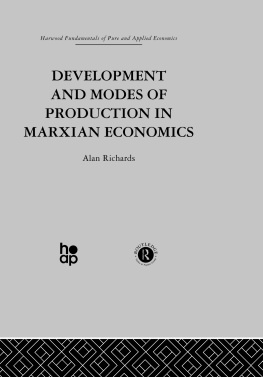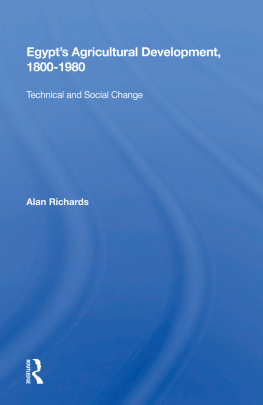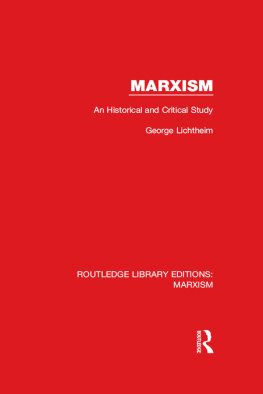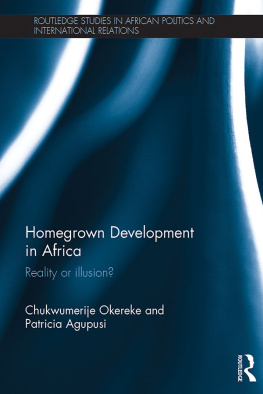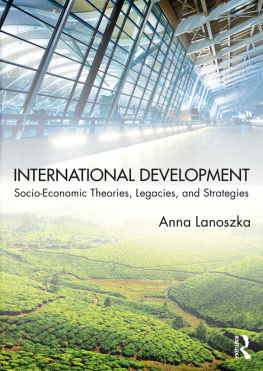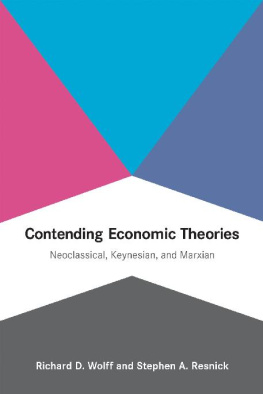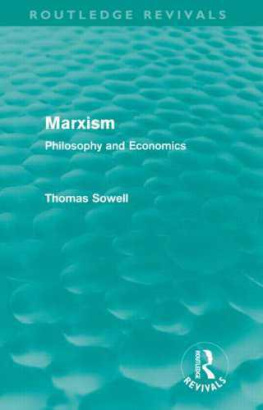
Harwood Fundamentals of Pure and Applied Economics
DEVELOPMENT AND MODES OF PRODUCTION IN MARXIAN ECONOMICS

FUNDAMENTALS OF PURE AND APPLIED ECONOMICS
EDITORS IN CHIEF
J. LESOURNE, Conservatoire National des Arts et
Mtiers, Paris, France
H. SONNENSCHEIN, University of Pennsylvania,
Philadelphia, PA, USA
ADVISORY BOARD
K. ARROW, Stanford, CA, USA
W. BAUMOL, Princeton, NJ, USA
W. A. LEWIS, Princeton, NJ, USA
S. TSURU, Tokyo, Japan
MARXIAN ECONOMICS II
In 3 Volumes
| I | Marxism and Really Existing Socialism | Nove |
| II | Development and Modes of Production in Marxian Economics | Richards |
| III | The State and the Economy under Capitalism | Przeworski |
DEVELOPMENT AND MODES OF PRODUCTION IN MARXIAN ECONOMICS
ALAN RICHARDS

First published in 1986 by
Harwood Academic Publishers GmbH
Reprinted in 2001 by
Routledge
2 Park Square, Milton Park, Abingdon,
Oxon, OX14 4RN
711 Third Avenue, New York, NY 10017
Routledge is an imprint of the Taylor & Francis Group, an informa business
1986 Harwood Academic Publishers GmbH
All rights reserved. No part of this book may be reprinted or reproduced or utilized in any form or by any electronic, mechanical, or other means, now known or hereafter invented, including photocopying and recording, or in any information storage or retrieval system, without permission in writing from the publishers.
The publishers have made every effort to contact authors/copyright holders of the works reprinted in Harwood Fundamentals of Pure & Applied Economics. This has not been possible in every case, however, and we would welcome correspondence from those individuals/companies we have been unable to trace.
These reprints are taken from original copies of each book. In many cases the condition of these originals is not perfect. The publisher has gone to great lengths to ensure the quality of these reprints, but wishes to point out that certain characteristics of the original copies will, of necessity, be apparent in reprints thereof.
British Library Cataloguing in Publication
Data
A CIP catalogue record for this book is available from the British Library
Development and Modes of Production in Marxian Economics
ISBN 0-415-26989-X Marxian
Economics II: 3 Volumes ISBN
0-415-26987-3
Harwood Fundamentals of Pure & Applied Economics
ISBN 0-415-26907-5
Development and Modes of Production in Marxian Economics A Critical Evaluation
Alan Richards
University of California, Santa Cruz, USA
A volume in the Marxian Economics section
edited by
John E. Roemer
University of California, Davis, USA

1986 by Harwood Academic Publishers GmbH
Poststrasse 22, 7000 Chur, Switzerland
All rights reserved
Harwood Academic Publishers
P.O. Box 197
London WC2E 9PX
England
58, rue Lhomond
75005 Paris
France
P.O. Box 786
Cooper Station
New York, NY 10276
United States of America
Library of Congress Cataloging-in-Publication Data
Richards, Alan, 1946
Development and modes of production in Marxian economics; a critical evaluation
(Fundamentals of pure and applied economics; vol. 12 Marxian economics section)
Includes index.
1. Marxian economics. 2. Economic development. 3. Production (Economic theory) I. Title. II. Series: Fundamentals of pure and applied economics; v. 12.
HB97.5.R5 1986 335.4 86-19473
ISBN 3-7186-0332-2
ISBN 3-7186-0332-2. ISSN 0191-1708. No part of this book may be reproduced or utilized in any form or by any means, electronic or mechanical, including photocopying and recording, or by any information storage or retrieval system, without permission in writing from the publishers. Printed in the United Kingdom.
Contents
Drawing on a personal network, an economist can still relatively easily stay well informed in the narrow field in which he works, but to keep up with the development of economics as a whole is a much more formidable challenge. Economists are confronted with difficulties associated with the rapid development of their discipline. There is a risk of balkanisation in economics, which may not be favorable to its development.
Fundamentals of Pure and Applied Economics has been created to meet this problem. The discipline of economics has been subdivided into sections (listed inside). These sections include short books, each surveying the state of the art in a given area.
Each book starts with the basic elements and goes as far as the most advanced results. Each should be useful to professors needing material for lectures, to graduate students looking for a global view of a particular subject, to professional economists wishing to keep up with the development of their science, and to researchers seeking convenient information on questions that incidentally appear in their work.
Each book is thus a presentation of the state of the art in a particular field rather than a step-by-step analysis of the development of the literature. Each is a high-level presentation but accessible to anyone with a solid background in economics, whether engaged in business, government, international organizations, teaching, or research in related fields.
Three aspects of Fundamentals of Pure and Applied Economics should be emphasized:
First, the project covers the whole field of economics, not only theoretical or mathematical economics.
Second, the project is open-ended and the number of books is not predetermined. If new interesting areas appear, they will generate additional books.
Last, all the books making up each section will later be grouped to constitute one or several volumes of an Encyclopedia of Economics.
The editors of the sections are outstanding economists who have selected as authors for the series some of the finest specialists in the world.
J. Lesourne
H. Sonnenschein
Development and Modes of Production in Marxian Economics: A Critical Evaluation
ALAN RICHARDS
University of California, Santa Cruz, CA., U.S.A.
Any author owes his readers a clear statement of his assumptions and an indication of the intended audience. The audience here is assumed to consist of two groups: those economists who are interested in larger, long-run, historical, and dynamic issues such as those raised by Marxists, and sociologists and political scientists who are interested in the views of and debates among such economists. I assume that readers are sympathetic to the notion that one cannot understand economic development without studying economic policy making, and that a grasp of the latter requires an examination of historical, sociological, and political questions. It is not assumed that readers share the ethical presuppositions or analytical framework of most Marxists. It is merely assumed that if they are skeptical, they are also curious.
Next page
